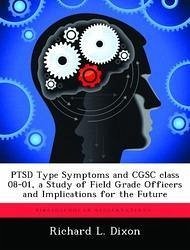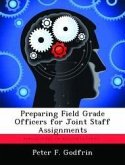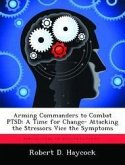With the emergence of the Global War on Terror (GWOT), the mental illness of Post Traumatic Stress Disorder (PTSD) is increasingly identified in returning veterans. A 2006 mental health study released by the Pentagon found 11% of returning OEF veterans and 19% of returning OIF veterans have mental health issues. Of the veterans sampled, 5% were Army Officers and 2% were Marine Officers. Thus, the primary research question was: Are the combat veterans of CGSC Class 08-01 representative of the Army's statistics on returning veterans with PTSD type symptoms? Using the Post Traumatic Stress Disorder Checklist-Military Version (PCL-M) and a demographic questionnaire, a survey sample of 297 field grade officers from a population of 584 combat veterans found 35% of single tour OEF veterans and 41% of single tour OIF veterans had PTSD type symptoms. 41% of multiple tour veterans had PTSD type symptoms. 50% of the survey sample believed mental health counseling would damage their careers and the percentage increased to 70% among those with PTSD type symptoms.








